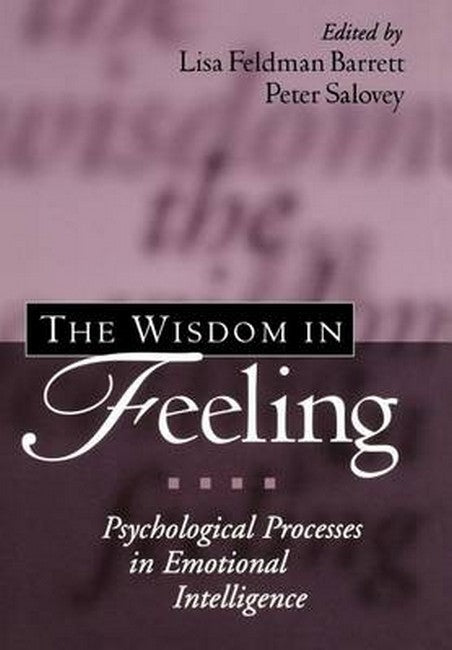Description
Introduction, Lisa Feldman Barrett and Peter Salovey I. Perceiving Emotion 1. Vocal Acoustics in Emotional Intelligence, Jo-Anne Bachorowski and Michael J. Owren 2. Emotional Intelligence and the Recognition of Emotion from Facial Expressions, Hillary Anger Elfenbein, Abigail A. Marsh, and Nalini Ambady 3. Extinction, Inhibition, and Emotional Intelligence, James B. Nelson and Mark E. Bouton II. Using Emotion in Thought and Action 4. Affect as Information: An Individual-Differences Approach, Carol L. Gohm and Gerald L. Clore 5. The Trouble with Vronsky: Impact Bias in the Forecasting of Future Affective States, Daniel T. Gilbert, Erin Driver-Linn, and Timothy D. Wilson 6. Situated Cognition and the Wisdom in Feelings: Cognitive Tuning, Norbert Schwarz 7. Emotional Response Categorization as Emotionally Intelligent Behavior, Paula M. Niedenthal, Nathalie Dalle, and Anette Rohmann 8. Emotion and Persuasion: Thoughts on the Role of Emotional Intelligence, David DeSteno and Julia Braverman 9. The Role of Emotion in Strategic Behavior: Insights from Psychopathology, Cary R. Savage III. Understanding Emotion 10. ""Why Is She Crying?"": Children's Understanding of Emotion from Preschool to Preadolescence, Susanne A. Denham and Anita Kochanoff 11. Complexity of Emotion Representations, Richard D. Lane and Branka Zei Pollermann IV. Managing Emotion 12. Wise Emotion Regulation, James J. Gross and Oliver P. John 13. Positive Emotions and Emotional Intelligence, Michele M. Tugade and Barbara L. Fredrickson 14. The Functional Utility of Negative Emotions, W. Gerrod Parrott V. Extensions 15. Toward a Shared Language for Emotion and Emotional Intelligence, James A. Russell and Kimberly A. Barchard 16. Sensitivity and Flexibility: Exploring the Knowledge Function of Automatic Attitudes, Melissa J. Ferguson and John A. Bargh 17. Theory of Mind, Autism, and Emotional Intelligence, Robert James Richard Blair

